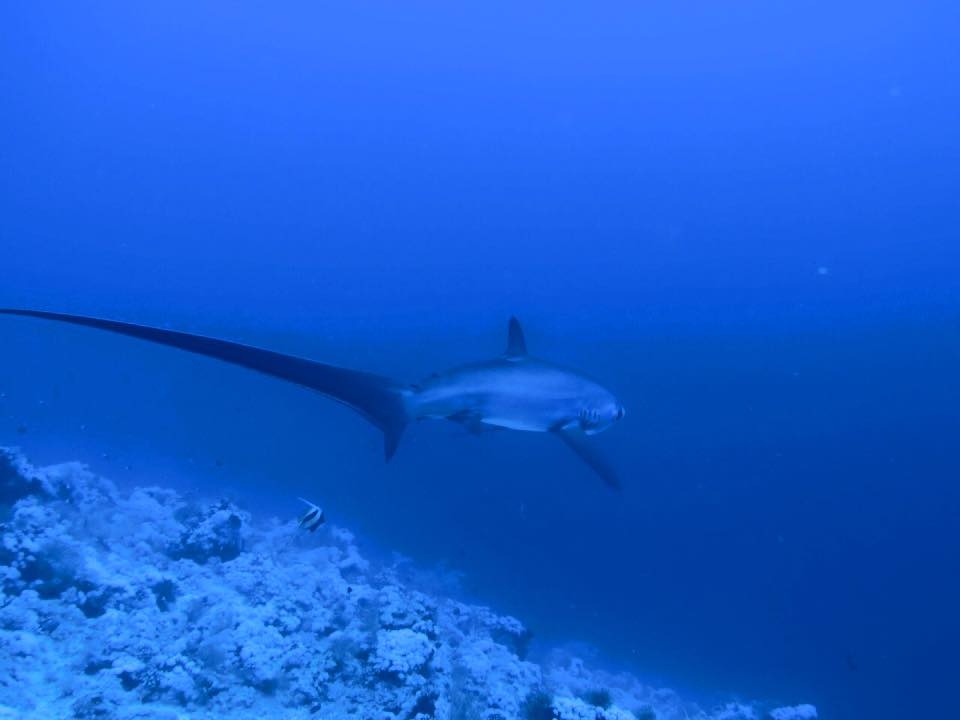By Raquel Gilliland and Breilly Roy, Sea of Change Foundation interns
Welcome to another “Creature Feature” where we briefly introduce you to some fascinating facts about a sea creature, why it is special and unique, and its conservation status. This week’s creature is the amazing thresher sharks. They belong to the class Chondrichthyes (sharks, rays, skates, and chimaeras) comprised of fishes that have skeletons made of cartilage rather than bone. The three species of threshers (Alopias spp.) stand out among sharks or elasmobranchs with their unique tail, or caudal fin, that can be as long as their body.

Their habitats are primarily pelagic, meaning open ocean, and they often travel into shallow coastal waters when hunting large schools of fish. They feed mainly on juvenile tuna, bluefish, and mackerel. They use their long tails to slap schools of fish thereby herding and stunning their prey. As with many species of sharks, they are vital apex predators helping to keep our oceans healthy.
According to the IUCN Red List, the common thresher shark is “vulnerable” to extinction with decreasing population trends. These negative trends are most likely due to their low reproductive rate and the effects of overfishing often driven by demand for shark fins for Asian markets and restaurants. In 2017, the common thresher shark was added to CITES Appendix II providing some protection from international trade in its parts including fins.
Given sharks’ vital role in marine ecosystem health and that many shark species are threatened by overfishing and habitat loss, the Sea of Change Foundation supports research that can help protect sharks. In 2017, with our partners Ocean First Institute, ConnectOcean, and the University of Costa Rica – CIMAR, we helped fund and launch the first-ever shark and ray assessments at Las Catalinas, Costa Rica, an area where sharks have likely been overfished. In 2018, the Foundation will continue to support research and conservation in the Guanacaste region of Costa Rica focused on sharks and rays.
Please consider supporting the Sea of Change Foundation as we focus our efforts on threatened species and habitats and work to create positive change for the oceans we all love to dive and explore. DONATE HERE. Thank you.




